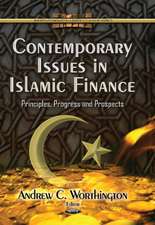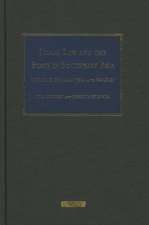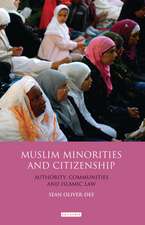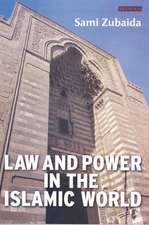Islamists and the State: Legitimacy and Institutions in Yemen and Lebanon
Autor Stacey Philbrick Yadaven Limba Engleză Hardback – 2 apr 2013
Preț: 773.14 lei
Preț vechi: 1112.53 lei
-31% Nou
Puncte Express: 1160
Preț estimativ în valută:
147.94€ • 154.16$ • 122.49£
147.94€ • 154.16$ • 122.49£
Carte tipărită la comandă
Livrare economică 03-17 aprilie
Preluare comenzi: 021 569.72.76
Specificații
ISBN-13: 9781780765211
ISBN-10: 1780765215
Pagini: 288
Ilustrații: 12 bw integrated
Dimensiuni: 138 x 216 x 30 mm
Greutate: 0.49 kg
Editura: Bloomsbury Publishing
Colecția I.B.Tauris
Locul publicării:London, United Kingdom
ISBN-10: 1780765215
Pagini: 288
Ilustrații: 12 bw integrated
Dimensiuni: 138 x 216 x 30 mm
Greutate: 0.49 kg
Editura: Bloomsbury Publishing
Colecția I.B.Tauris
Locul publicării:London, United Kingdom
Notă biografică
Stacey Philbrick Yadav is Assistant Professor in the Department of Political Science at Hobart and William Smith Colleges, New York. She holds a PhD in Political Science from the University of Pennsylvania.
Cuprins
Introduction: Islamists, Opposition and InclusionPart I: The Yemeni Congregation for RefromChapter 1: The Road to OppositionL From Nizam al-Fatwa to the Joint Meeting PartiesChapter 2: The Procedural Reform Agenda: Structural Limits of the JMPPart II: The Party of GodChapter 3: The Road to the Cabinet: Redefining Freindship and EnmityChapter 4: Hizballah in Government (and Back.and Forth)Part III: Islamist Discourse and Markets of MeaningChapter 5: Harnessing Takfir in Yemen: Allegations of Apostasy and Symbolic PowerChapter 6: Policing the Nation: Hizballah and the Discourse of TakhwinConclusion: Whither Moderation?














